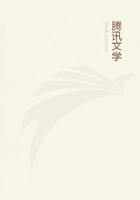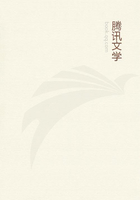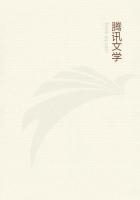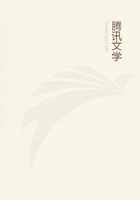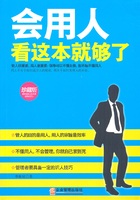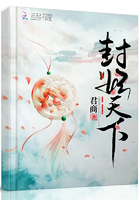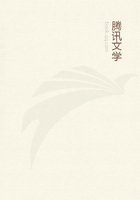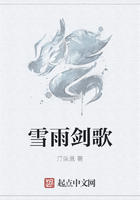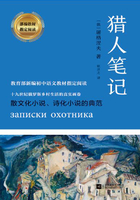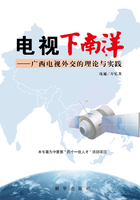"I did not look upon the priesthood as a profession," replied the rector, simply. "I cannot understand how a man can become a priest for any other reason than the undefinable power of vocation. I know that many men have served in the Lord's vineyard who have previously worn out their hearts in the service of passion; some have loved hopelessly, others have had their love betrayed; men have lost the flower of their lives in burying a precious wife or an adored mistress; some have been disgusted with social life at a period when uncertainty hovers over everything, even over feelings, and doubt mocks tender certainties by calling them beliefs; others abandon politics at a period when power seems to be an expiation and when the governed regard obedience as fatality. Many leave a society without banners; where opposing forces only unite to overthrow good. I do not think that any man would give himself to God from a covetous motive.
Some men have looked upon the priesthood as a means of regenerating our country; but, according to my poor lights, a priest-patriot is a meaningless thing. The priest can only belong to God. I did not wish to offer our Father--who nevertheless accepts all--the wreck of my heart and the fragments of my will; I gave myself to him whole. In one of those touching theories of pagan religion, the victim sacrificed to the false gods goes to the altar decked with flowers. The significance of that custom has always deeply touched me. A sacrifice is nothing without grace. My life is simple and without the very slightest romance. My father, who has made his own way in the world, is a stern, inflexible man; he treats his wife and his children as he treats himself. I have never seen a smile upon his lips. His iron hand, his stern face, his gloomy, rough activity, oppressed us all--wife, children, clerks and servants--under an almost savage despotism. I could--I speak for myself only--I could have accommodated myself to this life if the power thus exercised had had an equal repression; but, captious and vacillating, he treated us all with intolerable alternations. We were always ignorant whether we were doing right or whether he considered us to blame; and the horrible expectancy which results from that is torture in domestic life. A street life seems better than a home under such circumstances. Had I been alone in the house I would have borne all from my father without murmuring; but my heart was torn by the bitter, unceasing anguish of my dear mother, whom I ardently loved and whose tears put me sometimes into a fury in which I nearly lost my reason. My school days, when boys are usually so full of misery and hard work, were to me a golden period. I dreaded holidays. My mother herself preferred to come and see me. When I had finished my philosophical course and was forced to return home and become my father's clerk, I could not endure it more than a few months; my mind, bewildered by the fever of adolescence, threatened to give way. On a sad autumn evening as I was walking alone with my mother along the Boulevard Bourdon, then one of the most melancholy parts of Paris, I poured my heart into hers, and I told her that I saw no possible life before me except in the Church. My tastes, my ideas, all that I most loved would be continually thwarted so long as my father lived. Under the cassock of a priest he would be forced to respect me, and I might thus on certain occasions become the protector of my family. My mother wept much. Just at this period my eldest brother (since a general and killed at Leipzig) had entered the army as a private soldier, driven from his home for the same reasons that made me wish to be a priest. I showed my mother that her best means of protection would be to marry my sister, as soon as she was old enough, to some man of strong character, and to look for help to this new family. Under pretence of avoiding the conion without costing my father a penny to buy me off, I entered the seminary of Saint-Sulpice at the age of nineteen. Within those celebrated old buildings I found a peace and happiness that were troubled only by the thought of my mother and my sister's sufferings. Their domestic misery, no doubt, went on increasing; for whenever they saw me they sought to strengthen my resolution. Perhaps I had been initiated into the secrets of charity, such as our great Saint Paul defines it, by my own trials. At any rate, I longed to stanch the wounds of the poor in some forgotten corner of the earth, and to prove by my example, if God would deign to bless my efforts, that the Catholic religion, judged by its actions for humanity, is the only true, the only beneficent and noble civilizing force. During the last days of my diaconate, grace, no doubt, enlightened me. I have fully forgiven my father, regarding him as the instrument of my destiny. My mother, though I wrote her a long and tender letter, explaining all things and proving to her that the finger of God was guiding me, my poor mother wept many tears as she saw my hair cut off by the scissors of the Church. She knew herself how many pleasures I renounced, but she did not know the secret glories to which I aspired. Women are so tender! After I once belonged to God I felt a boundless peace; I felt no needs, no vanities, none of those cares which trouble men so much. I knew that Providence would take care of me as a thing of its own. I entered a world from which all fear is banished; where the future is certain; where all things are divine, even the silence. This quietude is one of the benefactions of grace. My mother could not conceive that a man could espouse a church. Nevertheless, seeing me happy, with a cloudless brow, she grew happier herself. After I was ordained I came to the Limousin to visit one of my paternal relations, who chanced to speak to me of the then condition of Montegnac. A thought darted into my mind with the vividness of lightning, and I said to myself inwardly: 'Here is thy vineyard!' I came here, and you see, monsieur, that my history is very simple and uneventful."
At this instant Limoges came into sight, bathed in the last rays of the setting sun. When the women saw it they could not restrain their tears; they wept aloud.


